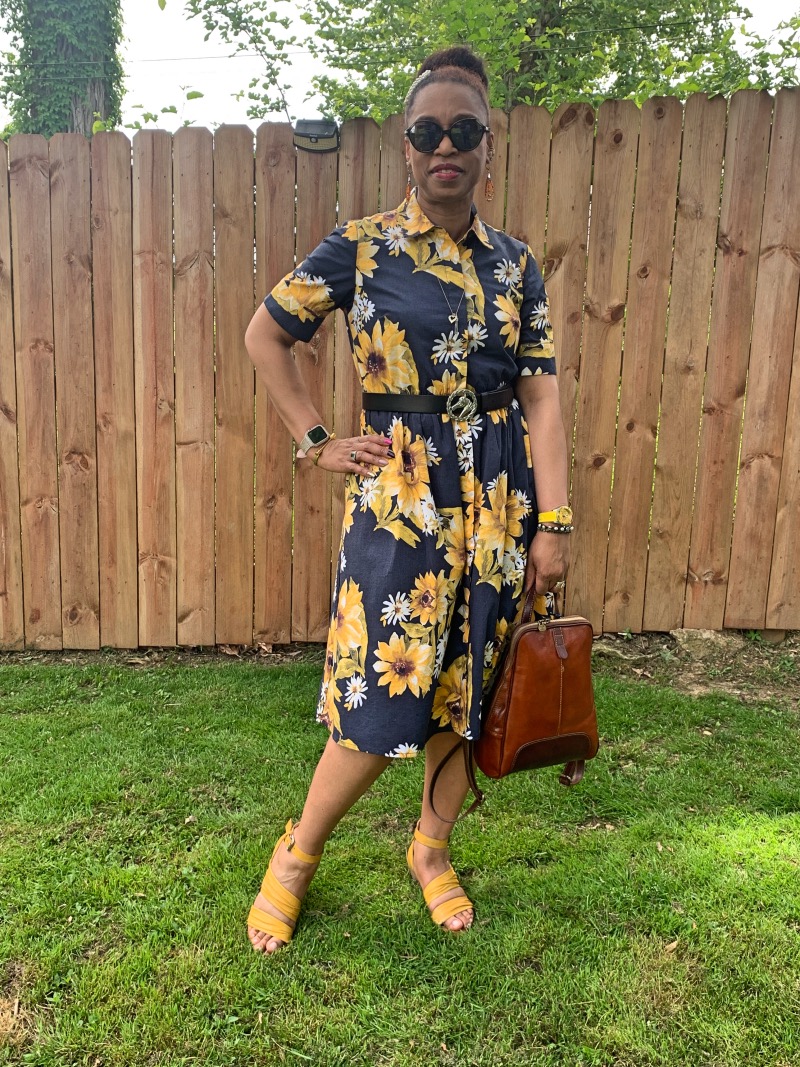by | Apr 13, 2022 | Lifestyle |
When you live in a home, you want it to be the best environment. Well, this ends up all coming down to you. The atmosphere in your home is only down to the people who live there, so if you have a problem with the way it is right now, you need to make sure that you are actively trying to make changes. In this article, we will be looking at some of the things that create a good environment, so keep reading if you would like to find out more.

Photo by Binyamin Mellish from Pexels
Clean
The first thing you need to do is make sure that your home is clean. We’re sure you don’t want to live in a dirty house, but we know that cleaning can mean a lot of work that you don’t have the energy for. The best thing you can do for yourself here is to keep it clean. Please find the time to do one big clean of the home and then do the little bits needed to keep it in this condition. Instead of waiting until it gets to a point where it must be done, never let it get that wrong in the first place.
We know that this sounds simple, and it is, but we also know that sometimes even just taking the recycling outside can be a chore after a long day. Just tell yourself it’s better this one-piece now than 50 down the line.
Safe
Another thing that you will need to do is make sure that the home is as safe as possible. Your home should be the place in the world where you feel safest, so you have to do whatever it takes to make this accurate. This might mean installing a security system to ensure that your home feels more secure. Or, it might be more to do with the repairs that need sorting inside the home. For example, you might need to get a drywall repair service out to you soon to sort out any issue you are having.
Happy
The final thing that we will mention is that for the environment to be as good as it can be, the home should be happy. You can achieve this by ensuring that everyone can speak freely in the house about whatever they feel the need to, by spending time together, and so much more. Do what you can, and we know that the home will be filled with love and laughter, creating a happy environment.
We hope you have found this article helpful and now see some ways to tell if your home is the best environment it could be. It’s important to understand that your home does not have to be these things all the time, well, except for safe. We want you and your family to live in the best possible environment, and ensuring that your home has these things as much as possible is the best way to do this.
by | Apr 11, 2022 | From the Heart, Lifestyle |
Living with chronic illness is overwhelming. Your illness can at times affect every aspect of your life, making it feel like a full-time job, on top of everything else you have to deal with.
You will have a difficult time coping with the uncertainty about your future and the unpredictability of day-to-day living, even after you have accepted your diagnosis. It does not take much to send someone suffering from a chronic disease “over the edge as it can overwhelm you socially, mentally, emotionally, and physically — taking a serious toll on your health and wellbeing. Even if you are able to manage your condition on most days, there are occasions when you may swing from being overwhelmed yet able to function to being absolutely destroyed by it.
Make a list of your worries and prioritize them.
When you are feeling overwhelmed, everything might seem like a crisis – to the point where you feel like you can not deal with anything at all. However, not all projects require the same level of urgency. Compile a list of your issues and arrange them in descending order of significance. Decide to deal with only one issue at a time and to do as many tasks as you have the energy to complete.
Keep a record of your emotions.
Some people prefer to express their emotions in a more linear manner, for as by writing in a journal or diary. Keep a notebook in your purse or open the notes app on your phone and jot down a few bullet points if you feel overwhelmed to refer back to later.
Research
Having a sense of being overwhelmed can sometimes be caused by a lack of understanding about what is going on with you and your body. Educating yourself about your condition and treatments – perhaps you could read more about potential things that could help – can help you feel more in control and relaxed. However, put a limit because it is possible to become dragged into infinite rabbit holes of study and suffer from information overload as a result of this.
Make a connection
The experience of living with a chronic disease may be isolating and exhausting if you attempt to deal on your own. Gather with a friend for coffee, take your youngster out for an evening stroll, contact your folks, or send a brief text to a loved one to let them know you are thinking about them.
Attend a meeting with a support group.
No matter whether you meet online or in person, being in the company of individuals who have the same condition as you or who are going through a comparable experience may be tremendously beneficial. Knowing that others have been in your shoes and witnessing how they dealt with their difficulties might help you deal with your own challenging sentiments.
by | Apr 10, 2022 | Lifestyle |
The past couple of years has caused many of us to pause and take stock of our health and way of life. We may have decided to give up smoking, reduce our alcohol use, or drop a few pounds. It is well recognized that being overweight can harm your ability to recover from illness. For this reason alone, many individuals are considering shedding some weight and joining the ever-growing weight loss community. Here, we look at some tips to help you.

Photo by Siora Photography on Unsplash
Eat breakfast
Many people who have successfully lost weight and maintained weight have made it a habit to have breakfast every day. Many people feel that skipping breakfast is a smart way to lose weight, but they wind up eating even more due to their mistakes over the rest of the day.
According to many studies, breakfast eaters have lower BMIs than those who skip breakfast daily, and they also do better in school and at work than their counterparts. Having a bowl of whole-grain cereal with fruit and low-fat dairy for breakfast is a simple and nutritious way to start the day. You might also consider meal replacement bars as a convenient option for those on the go.
Watch what you are drinking.
We sometimes overlook the importance of including beverages in our daily calorie consumption, but they may quickly push us over the edge if we are not careful. Sweetened drinks are abundant in calories, yet they do not provide the same level of hunger satisfaction that solid meals do. To relieve your thirst, choose from various beverages, including water, sparkling water with lemon, skim or low-fat milk, or small amounts of 100 percent fruit juice.
Keep an eye on the number of calories you eat when drinking alcoholic beverages since they may quickly add up. If you drink a glass or two of wine or a cocktail every day, restricting your alcohol use to the weekends can save you significant calories.
Replace high-fat meals with lower-fat alternatives
When feasible, substitute low-fat or lighter versions of salad dressings, mayonnaise, dairy products, and other goods for full-fat or heavy versions. If you utilize low-fat and lighter things, you may reduce your calorie intake, and if the product is mixed in with other ingredients, no one will notice the difference.
Take into consideration your surroundings
Another simple strategy to help you lose weight is to take control of your surroundings. This includes anything from stocking your kitchen with lots of healthy alternatives to picking the right restaurants. To avoid temptation, you should stay away from unlimited-serving buffets. Eat a nutritious snack before heading to a party so as not to be hungry when you arrive, and fill your plate sparingly when you are at the buffet. Continue to wait for at least 15 minutes before returning for additional food, and drink a large glass of water between each eating round.
Increase your intake of fruits and vegetables.
By consuming a large amount of low-calorie, high-volume fruits and vegetables, you may reduce your intake of high-fat, high-calorie foods. Place the veggies on top of the meat and to the side of the meal, away from the center of the plate. Alternatively, a salad or a small bowl of vegetable soup might be served as an appetizer before lunch or supper. This will help fill you up a little more and prevent you from eating as many calorie-dense foods as you would otherwise.
by | Apr 10, 2022 | Lifestyle |
Cosmetic surgery is a multi-billion-dollar industry. In 2019, over 1.8 million procedures were performed, with about half of those performed on women between 40 and 54. These days, there is a surgical procedure for practically anything, from breast implants and reductions to liposuction, nose reconstruction to hip replacements – and everything in between. Every week, many non-invasive operations, ranging from dermaplaning to laser hair removal, are carried out in the clinic.
People undergo cosmetic surgery for various reasons, the majority of which are related to a lack of confidence, the desire to conceal or correct perceived flaws, the desire to look like someone they admire, or simply because they want to. Women account for 92 percent of all cosmetic surgery procedures performed. All of these are entirely reasonable reasons, but it is crucial to remember that cosmetic surgery has a certain amount of risk like any other type of surgery. If you want to undergo surgery for any reason, whether now or in the future, you must be aware of the risks and have asked yourself a few questions to make an educated choice about your procedure. If you are still confident that this is the best option for you after answering their questions and conducting your research, go ahead and do it!

Image via Unsplash
Whether or whether your cosmetic surgery practitioner is the best fit
The vast majority of cosmetic surgeons are incredibly talented, qualified professionals who go to great lengths to ensure that their patients are safe and satisfied with the results of their procedures. Unfortunately, some unscrupulous practitioners are out there, like with every other trade. Ensure that you thoroughly investigate the reputation and accreditations of the surgical provider you intend to choose for your procedure. They should be delighted to answer any of your questions, no matter how little they appear to be, and should be able to provide you with both male and female surgeons upon request.
Are you in good physical shape and health?
There are hazards associated with surgery. We are all aware of this – even ordinary medical procedure is aware of it. You must be as fit and healthy as possible before undergoing an invasive surgical operation to minimize the risks associated with the surgery. Consider the following scenario: if you are carrying a few extra pounds, is it possible for you to strive to remove them before the event? Other than that, do you appear to be in good health? Please inform your surgeon of any other medical issues or diseases you may be suffering from so that they can determine whether you are still a good candidate for safe plastic surgery.
Is your mental health in good shape?
It is critical to maintain good mental health and a positive outlook before and after surgery. If you expect to walk into a room looking like yourself and walk out looking like someone completely different, you may need to reevaluate your expectations. Similarly, if you think that the surgery would help you to improve your life or transform your identity as a person, you should consider the deeper core cause of your problems. Good cosmetic surgery will talk to you about the expected outcome and any concerns you may have. Still, you should also consider counseling or therapy if your mental health is not as good as you would like it to be before your procedure.
by | Apr 8, 2022 | Lifestyle |
Stress is an unavoidable part of life. The reason why our brain recognizes stress is linked to evolution. Stress is the physiological response to a potential threat. The brain identifies the threat and creates the stress response as a survival mechanism. Therefore, when our ancestors faced wild animals, they experienced elevated heartrate and a rush of hormones that contributed to speeding up their escape routes. The bottom line: Stress is an engrained survival response.
Stress levels drop as soon as you are out of danger. Unfortunately, when it comes to emotional stress, there is no such thing as ever being out of reach of a threat. Therefore, the brain never sends the notification to reduce stress levels. However, you can proactively help your brain reduce the stress response. Ultimately, while you can’t stop stress, you can learn to let go when you don’t need it.
 Photo by Aarón Blanco Tejedor on Unsplash
Photo by Aarón Blanco Tejedor on Unsplash
Meditate more often
Meditation and deep breathing techniques have been shown to impact stress reduction positively. Understandably, if you are new to meditation, it can be tricky to develop the appropriate routine. Yet, regular practice can help you find a path to inner peace.
Comparatively, breathing techniques tend to be more effective for beginners as they can trick the brain into thinking that you are already less stressed, which, in turn, reduces stress levels. Indeed, breathing strategies can drop your heartbeat, which sends the signal to the brain that you are out of danger. As a result, cortisol levels, the stress hormone, decrease, and you feel more relaxed.
Be physically active
Exercising presents numerous advantages when it comes to stress response. Indeed, stress triggers a fight or flight reaction in the body, which can be compared to a disease. Regular physical activity prepares the body by improving its physical condition. In other words, when you train regularly, you can fight diseases and the long-lasting effects of the fight or flight response more effectively. Additionally, sports can act as an escape mechanism, helping take your mind off thoughts and worries. When it comes to emotional stress, sports can provide a solution to reduce negative thoughts, which also drops stress levels.
Besides, scientists have also discovered that physical activities produce endorphins, which in the long term can also reduce stress. So, if you are the kind of person who struggles with emotional or chronic stress, it can be a good idea to establish a sports routine. You could start a simple home gym with the perfect home treadmill and a set of dumbbells to keep your heart pumping. This would ensure you can switch stress for sweat at any time of the day or night!
Avoid stress-aggravating food
Food doesn’t just fuel the body. It can also aggravate some conditions. For example, while food doesn’t create stress per se, it can have a significant impact on your existing stress levels. It isn’t uncommon to crave high carb and sugar food when you’re under a lot of stress. We all want to grab a sweet reward, such as a donut, at the end of a tough day. Unfortunately, the treatment can be counterproductive. Indeed added sugar and refined carbohydrates cause an increase in blood sugar. The body regulation process for blood sugar affects cortisol (stress hormone) levels, which makes you feel more stressed. Another important food to avoid when under stress is caffeine, as it influences your sleep cycle.
Improve your bedtime routine
What does sleep have to do with stress? The answer is Everything. Sleep helps regulate your mood by naturally decreasing the level of some hormones, such as cortisol. Therefore, your cortisol level remains elevated when you don’t get enough sleep. According to studies, individuals who have less than 5 hours of sleep a night are more at risk of cortisol-related issues such as high blood pressure.
Therefore, it can be helpful to improve your bedtime routine so you can rest and wake up feeling refreshed and relaxed.
Be aware of your mental health
While stress is a mental health issue, it can be made worse by existing conditions. For example, if you already struggle with depressive mood disorders, it could make you more sensitive to stress. Similarly, people who experience anxiety attacks are more prone to perceive stress. It can be useful to discuss your situation with a specialist who can provide medicated assistance and therapy.
Avoid unnecessary stress
Stress is unavoidable in day-to-day life. Yet, stress exposure can be preventable, such as toxic friendships or social media trolls. Sometimes, walking away from a stressful situation is the best thing you can do for yourself.
Stress is present in everyday life. But you control how you choose to respond to it. You can reclaim your peace of mind through a mindful routine, healthy lifestyle, and mental health awareness. Remember you are in charge. Stress does not control you.
by | Apr 7, 2022 | Lifestyle |
When it comes to redesigning or renovating your house, you may be unsure where to begin. These steps will assist you in getting started. Allow us to demonstrate how to begin a room makeover to create the home of your dreams.

Photo by Spacejoy on Unsplash
DETERMINE YOUR REQUIREMENTS
The first crucial step in starting any room renovation project is determining how you will use the space in question. And what do you want it to feel like for you? Consider the practical and physical requirements of the room, such as seating, floor space, and a table or desktop area. Then consider how you, your family, and your guests want to be made to feel in this room when they enter. You might be able to choose three essential terms that will best represent the atmosphere in your room. Make use of these to assist you in limiting down your selection of images for the next step, which is gathering inspiration photographs.
SEEK OUT INSPIRATIONAL IDEAS
Pinterest is a great place to gather inspiration, ideas, and images of lifestyles, rooms, and items. You can set up secret boards if you do not want anyone else to see what you are doing. You could also go retro and buy home decor magazines and cut out pictures to stick to a bulletin board. Once you have a board full of inspirational photos, look at them and identify anything that is recurring – colors, patterns, styles, fabrics, etc.
MAKE A FLOOR PLAN FOR YOUR ROOM
By measuring your room and drawing a floor plan, you can verify that you are purchasing or ordering furniture and accessories that are the proper size for your space. Measure the length, breadth, and height of your space and draw it on paper or on your computer to get a general idea of its layout. So, when you have potential furniture for your space, you can draw it into your layout to check if it fits and if the scale is appropriate for your area.
MAKE A SHOPPING LIST
Following your determination of how you want to use your room, how you want it to feel, and how large your room is, you can develop a shopping list for all of the products you will need for your space, looking for coupon codes such as teakworks4u discount code to help you save money. Take stock of what you already have that can be used first, and then make a list of what you need to purchase to fill in the gaps. What you require will be determined by the size of your room and your particular preferences, but include items such as large and small furniture, artwork, carpets, minor accessories, light fixtures, draperies, and plants on your shopping list. You should be able to identify any goods that you would want to DIY to save money or create something unique.
These stages are an excellent approach to begin any room makeover since they will help you become more focused and help you produce something you will be proud of.










Follow!